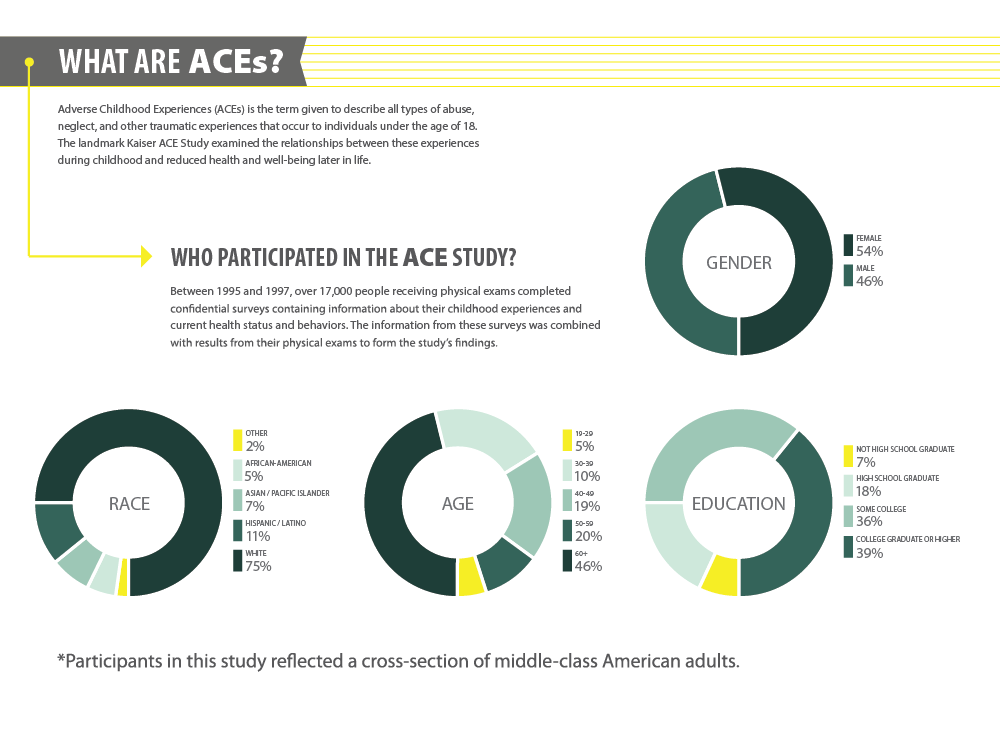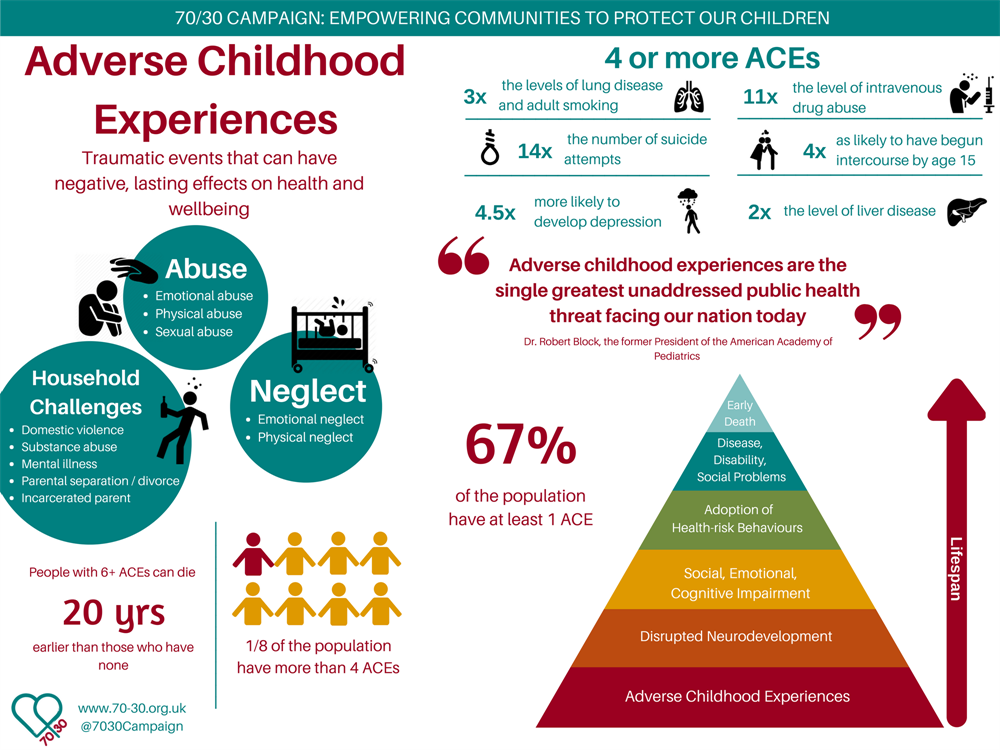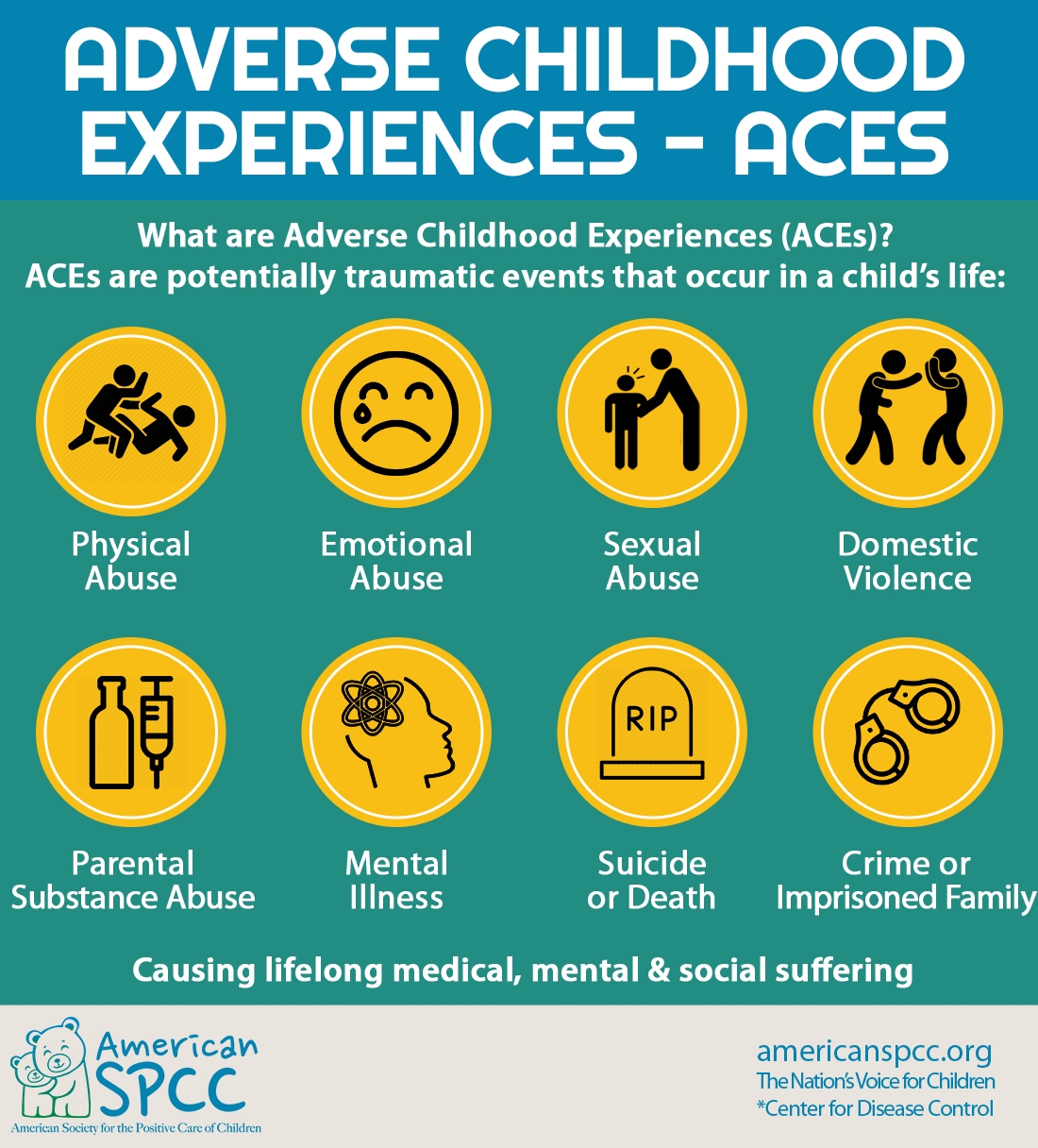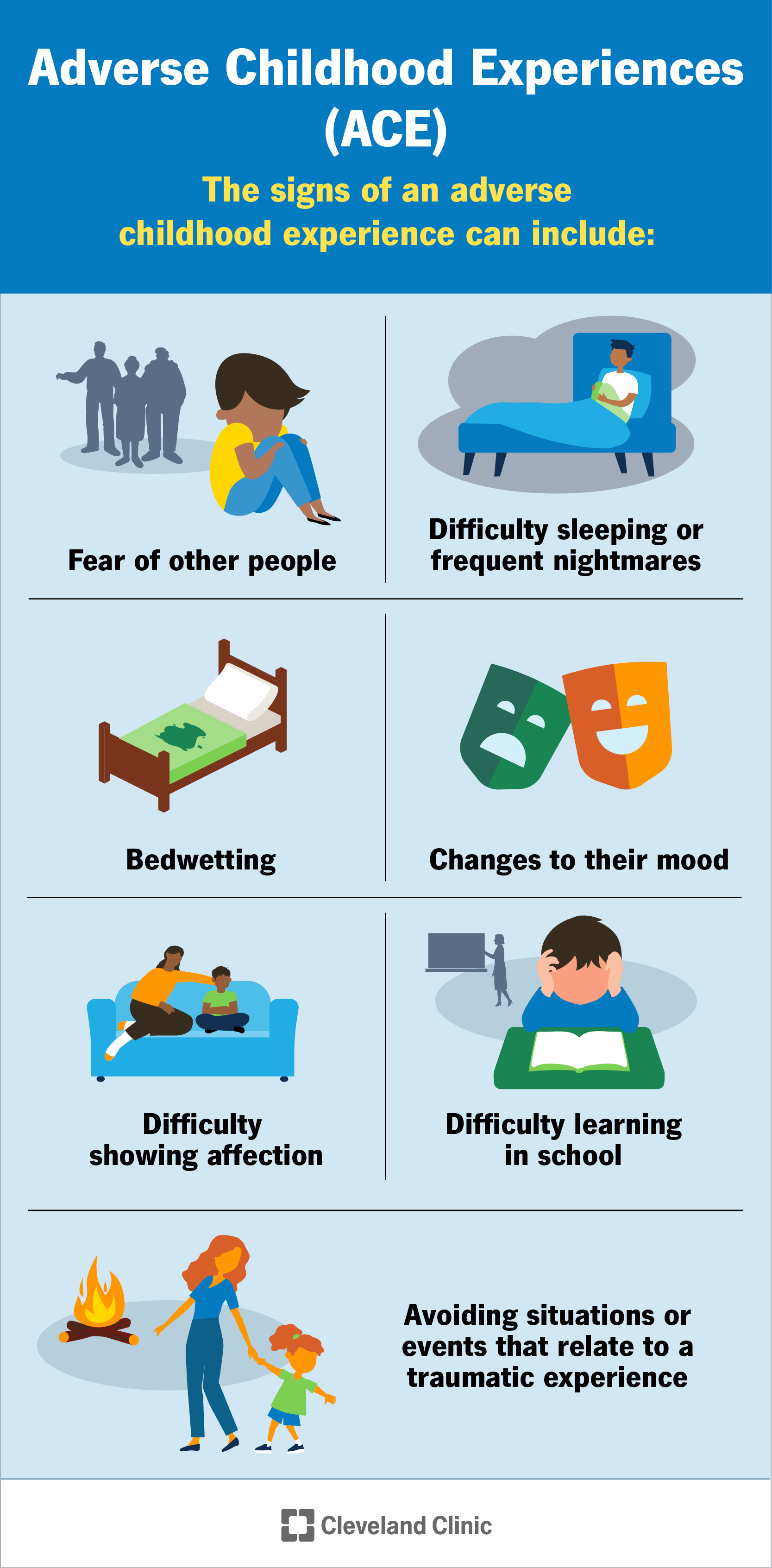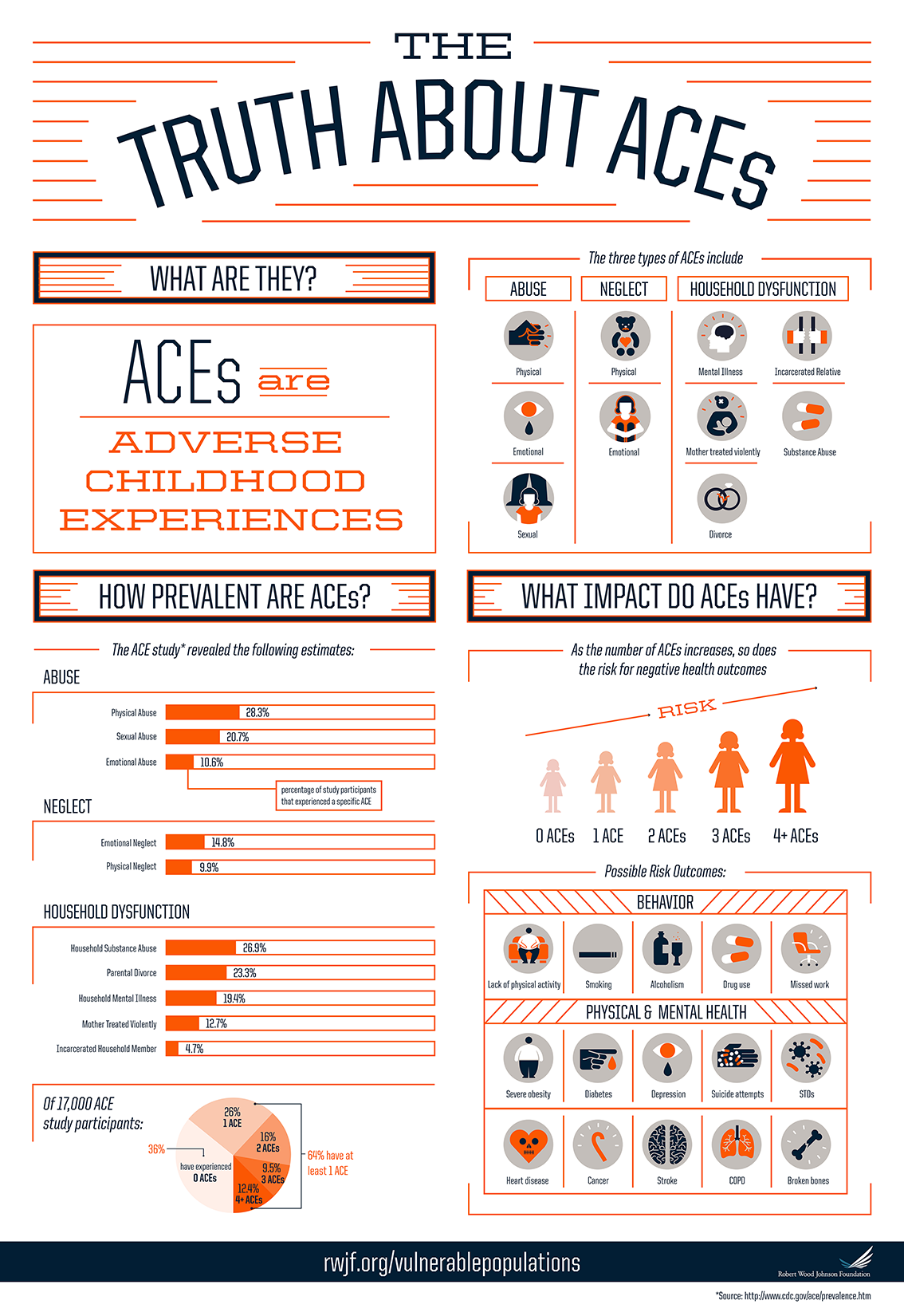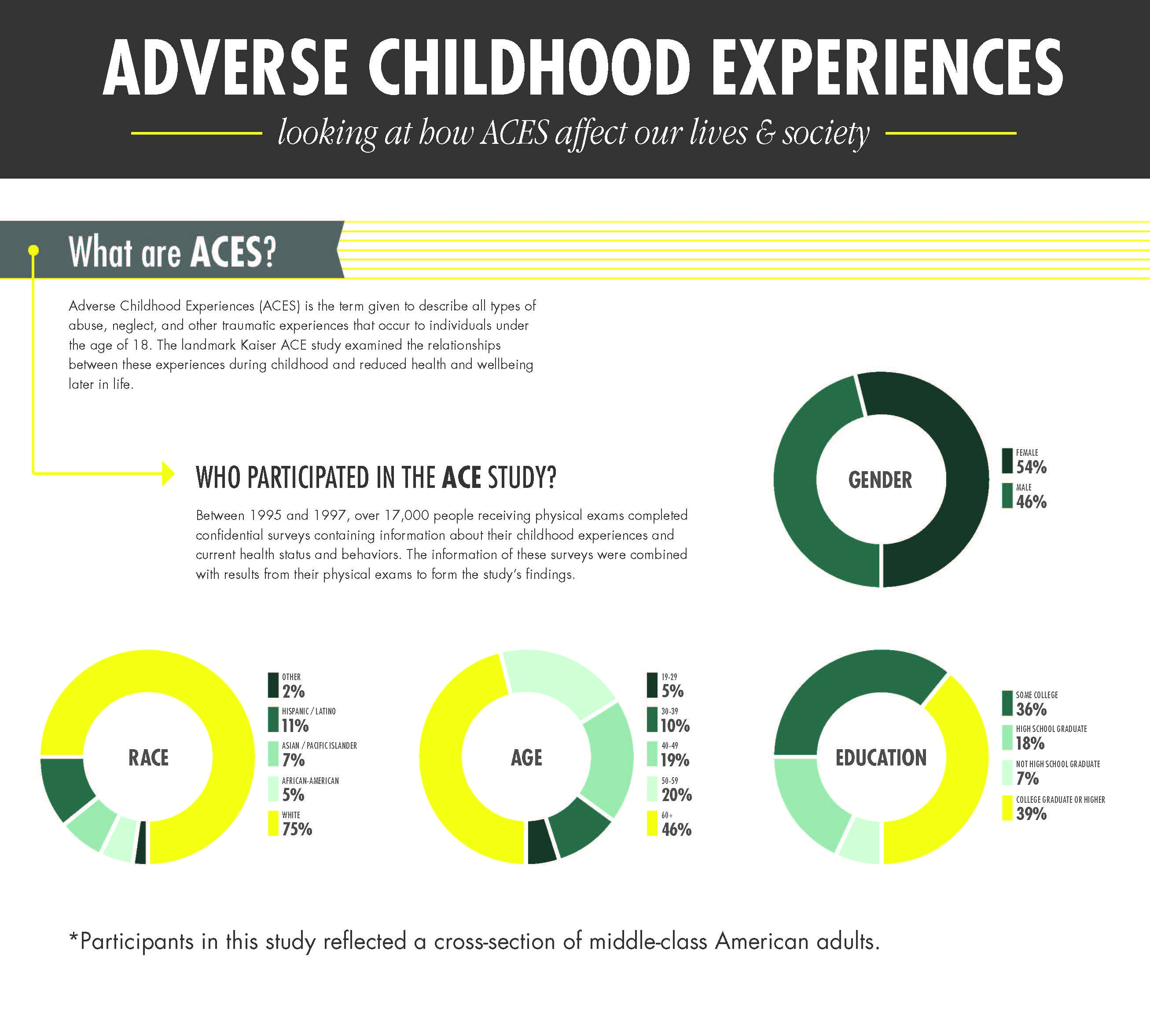Fact Sheet Adverse Childhood Experiences - In babies, high doses of adversity are associated with failure to thrive, growth delay, sleep. Are detectable as early as infancy. The term adverse childhood experiences (aces) refers to a range of events that a child can experience, which leads to stress and can. Adverse childhood experiences (aces) are potentially traumatic events that can have negative, lasting effects on health and well. 17,000 participants identified this connection. Results have been reproduced in other studies with different populations 3 and a continuation. In a study, 78% of children reportedly had multiple. 68% of children and adolescents experienced at least one potentially traumatic event by age 16.
Adverse childhood experiences (aces) are potentially traumatic events that can have negative, lasting effects on health and well. Results have been reproduced in other studies with different populations 3 and a continuation. In babies, high doses of adversity are associated with failure to thrive, growth delay, sleep. Are detectable as early as infancy. The term adverse childhood experiences (aces) refers to a range of events that a child can experience, which leads to stress and can. 17,000 participants identified this connection. In a study, 78% of children reportedly had multiple. 68% of children and adolescents experienced at least one potentially traumatic event by age 16.
The term adverse childhood experiences (aces) refers to a range of events that a child can experience, which leads to stress and can. Results have been reproduced in other studies with different populations 3 and a continuation. 17,000 participants identified this connection. Are detectable as early as infancy. Adverse childhood experiences (aces) are potentially traumatic events that can have negative, lasting effects on health and well. In babies, high doses of adversity are associated with failure to thrive, growth delay, sleep. In a study, 78% of children reportedly had multiple. 68% of children and adolescents experienced at least one potentially traumatic event by age 16.
ACE Fact Sheets to Give Your Doctors, Patients & Beyond (free downloads
In babies, high doses of adversity are associated with failure to thrive, growth delay, sleep. Results have been reproduced in other studies with different populations 3 and a continuation. Adverse childhood experiences (aces) are potentially traumatic events that can have negative, lasting effects on health and well. 17,000 participants identified this connection. Are detectable as early as infancy.
Bermuda Adverse Childhood Experiences ACEs Study White Paper Family
In a study, 78% of children reportedly had multiple. Are detectable as early as infancy. Results have been reproduced in other studies with different populations 3 and a continuation. 17,000 participants identified this connection. 68% of children and adolescents experienced at least one potentially traumatic event by age 16.
CDC Adverse Childhood Experiences (ACEs) Fact Sheet The Kennedy Forum
17,000 participants identified this connection. Adverse childhood experiences (aces) are potentially traumatic events that can have negative, lasting effects on health and well. In a study, 78% of children reportedly had multiple. Are detectable as early as infancy. The term adverse childhood experiences (aces) refers to a range of events that a child can experience, which leads to stress and.
Adverse Childhood Experiences (ACE) Liverpool CAMHS
In a study, 78% of children reportedly had multiple. Results have been reproduced in other studies with different populations 3 and a continuation. Adverse childhood experiences (aces) are potentially traumatic events that can have negative, lasting effects on health and well. Are detectable as early as infancy. In babies, high doses of adversity are associated with failure to thrive, growth.
Step by Step Adverse Childhood Experiences
In a study, 78% of children reportedly had multiple. Are detectable as early as infancy. In babies, high doses of adversity are associated with failure to thrive, growth delay, sleep. 17,000 participants identified this connection. The term adverse childhood experiences (aces) refers to a range of events that a child can experience, which leads to stress and can.
Adverse Childhood Experiences Trauma in Young People
Results have been reproduced in other studies with different populations 3 and a continuation. 17,000 participants identified this connection. Are detectable as early as infancy. The term adverse childhood experiences (aces) refers to a range of events that a child can experience, which leads to stress and can. 68% of children and adolescents experienced at least one potentially traumatic event.
Adverse Childhood Experiences ACEs American SPCC
Adverse childhood experiences (aces) are potentially traumatic events that can have negative, lasting effects on health and well. The term adverse childhood experiences (aces) refers to a range of events that a child can experience, which leads to stress and can. 17,000 participants identified this connection. Results have been reproduced in other studies with different populations 3 and a continuation..
Adverse Childhood Experiences (Aces) & Childhood Trauma The Lasting Impact
Adverse childhood experiences (aces) are potentially traumatic events that can have negative, lasting effects on health and well. 17,000 participants identified this connection. The term adverse childhood experiences (aces) refers to a range of events that a child can experience, which leads to stress and can. Results have been reproduced in other studies with different populations 3 and a continuation..
Infographic Adverse Childhood Experiences HomelessHub
In babies, high doses of adversity are associated with failure to thrive, growth delay, sleep. Results have been reproduced in other studies with different populations 3 and a continuation. Adverse childhood experiences (aces) are potentially traumatic events that can have negative, lasting effects on health and well. 68% of children and adolescents experienced at least one potentially traumatic event by.
Infographic How adverse childhood experiences affect our lives and
The term adverse childhood experiences (aces) refers to a range of events that a child can experience, which leads to stress and can. Are detectable as early as infancy. 68% of children and adolescents experienced at least one potentially traumatic event by age 16. 17,000 participants identified this connection. In a study, 78% of children reportedly had multiple.
The Term Adverse Childhood Experiences (Aces) Refers To A Range Of Events That A Child Can Experience, Which Leads To Stress And Can.
In a study, 78% of children reportedly had multiple. In babies, high doses of adversity are associated with failure to thrive, growth delay, sleep. 17,000 participants identified this connection. Adverse childhood experiences (aces) are potentially traumatic events that can have negative, lasting effects on health and well.
Are Detectable As Early As Infancy.
68% of children and adolescents experienced at least one potentially traumatic event by age 16. Results have been reproduced in other studies with different populations 3 and a continuation.


